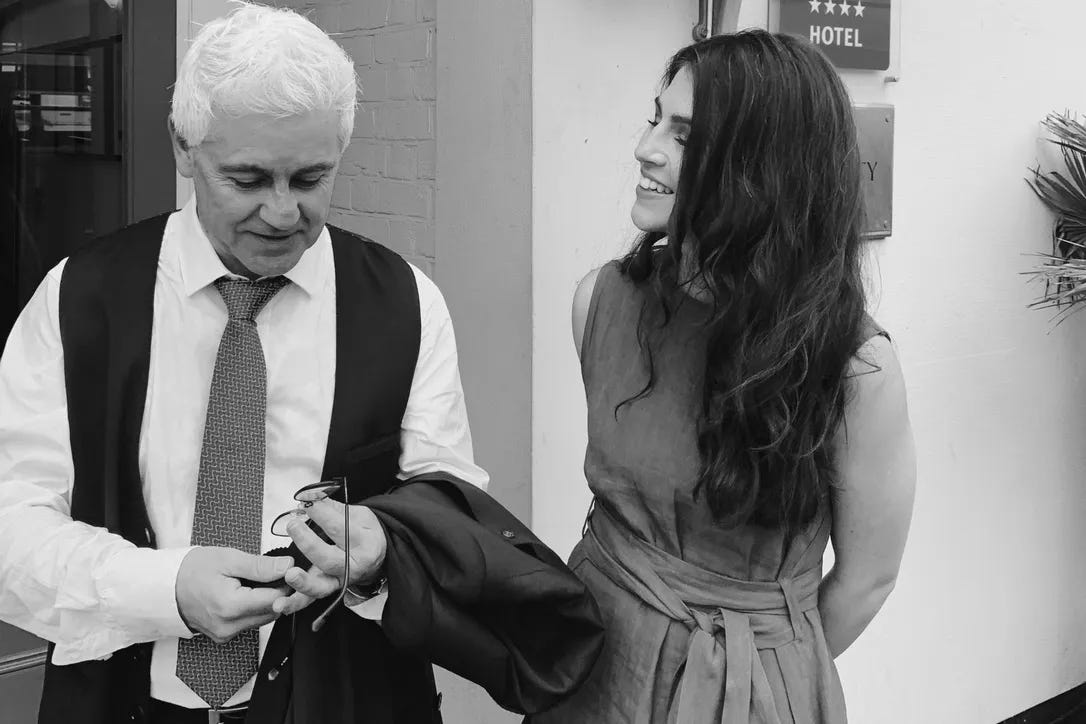An Interview with Lauren Crichton
Using tech frameworks to solve nonprofit problems.
I read Lauren Crichton’s great Substack Pass It On—a bi-weekly newsletter helping the tech and nonprofit sectors learn from each other. It’s not a combination you usually hear about, and that’s exactly why I admire it. Read on to find out why, in this generous interview where Lauren shares her background and our future.
You’ve worked in Tech for almost a decade. Where do your connection and interest in nonprofits come from?
My journey towards the nonprofit sector is a personal one. It started with the many conversations between myself and my dad.
My dad is a charity executive; I lead marketing at a tech startup. We’ve always been interested in each other’s careers and asked each other for advice when needed. Through these discussions, my dad and I discovered a knowledge gap between our sectors. He'd tell me about a challenge he was facing, and I'd suggest a framework from the tech industry to solve it. These frameworks were just as relevant for leaders like my dad, but he'd never heard of them because they originated outside his sector. And because of how content algorithms work on platforms like Google and LinkedIn, that wasn't about to change. This felt wrong to me.
When the pandemic took its grip in 2020, I decided to take action. How could the UK charity sector face a £10 billion shortfall and take its entire workforce online at the same time? An impossible task. Meanwhile, many tech companies had breezed into remote work and were making even more money. The least we could do is share some advice! I launched my first newsletter a few weeks later and never looked back.
Pass It On has evolved a lot since that first issue. Now, the knowledge sharing is bi-directional: leaders from both tech and nonprofits are doing interviews and takeovers. I'm proud that my newsletter is opening up that exchange.
Why do you believe we should encourage this cross-sector exchange?
I believe connecting across sectors is important for three reasons:
The tech skills gap in nonprofit orgs is real. With a global recession looming, that gap is going to widen. Why? Because economic downturns hit nonprofits like any other business. And when money is tight, training budgets are the first to get cut. The tech industry has a responsibility to build skills and share knowledge where it’s needed most.
The tech industry is built on hubris, and that hubris can cause serious damage. Tech must ask different questions to learn that it hasn't got all the answers. Those questions can only come from obtaining a broader perspective, one that includes other sectors like nonprofits.
We need interdisciplinary thinking and cross-sector collaboration to solve the most pressing world problems. But the algorithms powering today’s online search and discovery inhibit exactly this. They reinforce echo chambers and reduce the chances of seeing content outside our networks. If we want problem-solving to flourish, we need to hack the system.
How do you Do Good in your career? What brought along this path?
I try to Do Good in my career by working and leading with my values. I want to leave the world in a better place than I found it, and I believe that one key way to do that is by bringing profit and purpose closer together. Another way is to work for an organization with the potential to create an immense positive impact. That’s why I work at Sana. Sana exists to radically improve how people learn and access knowledge. We’re applying the latest breakthroughs in artificial intelligence to augment human intelligence—and, consequently, accelerate the innovation and progress needed to solve the world’s most important problems.
If you could change one thing about the process for social impact, what would it be?
I would change how we fund it.
Lauren had so much to share that it needed two Follies! On that cliffhanger I’ll leave you until next week for the remainder of our interview.


